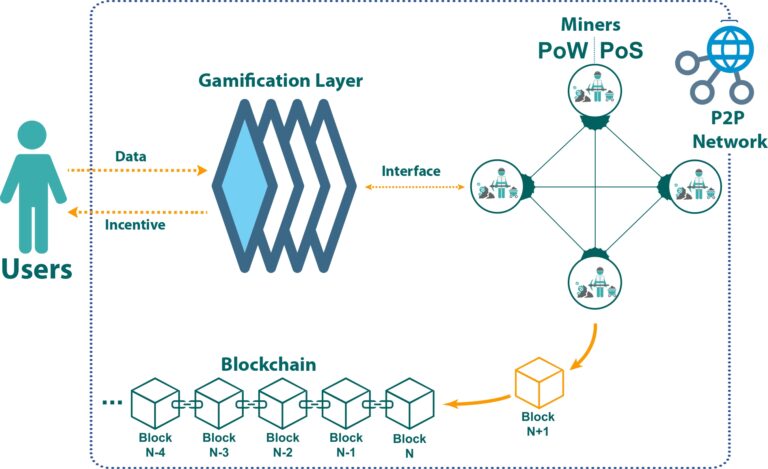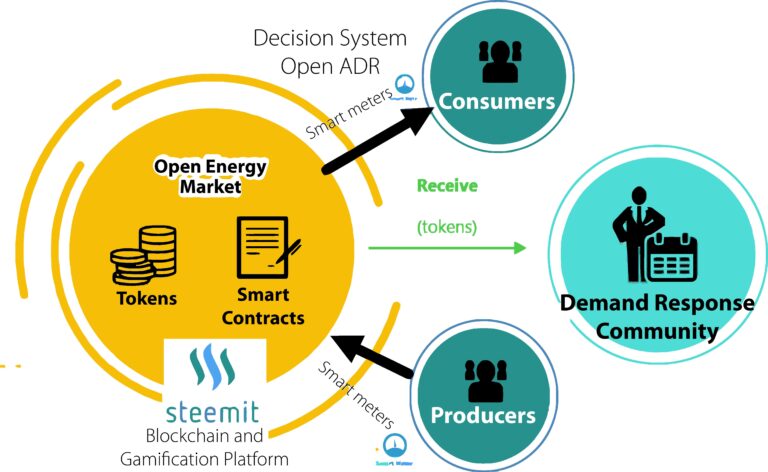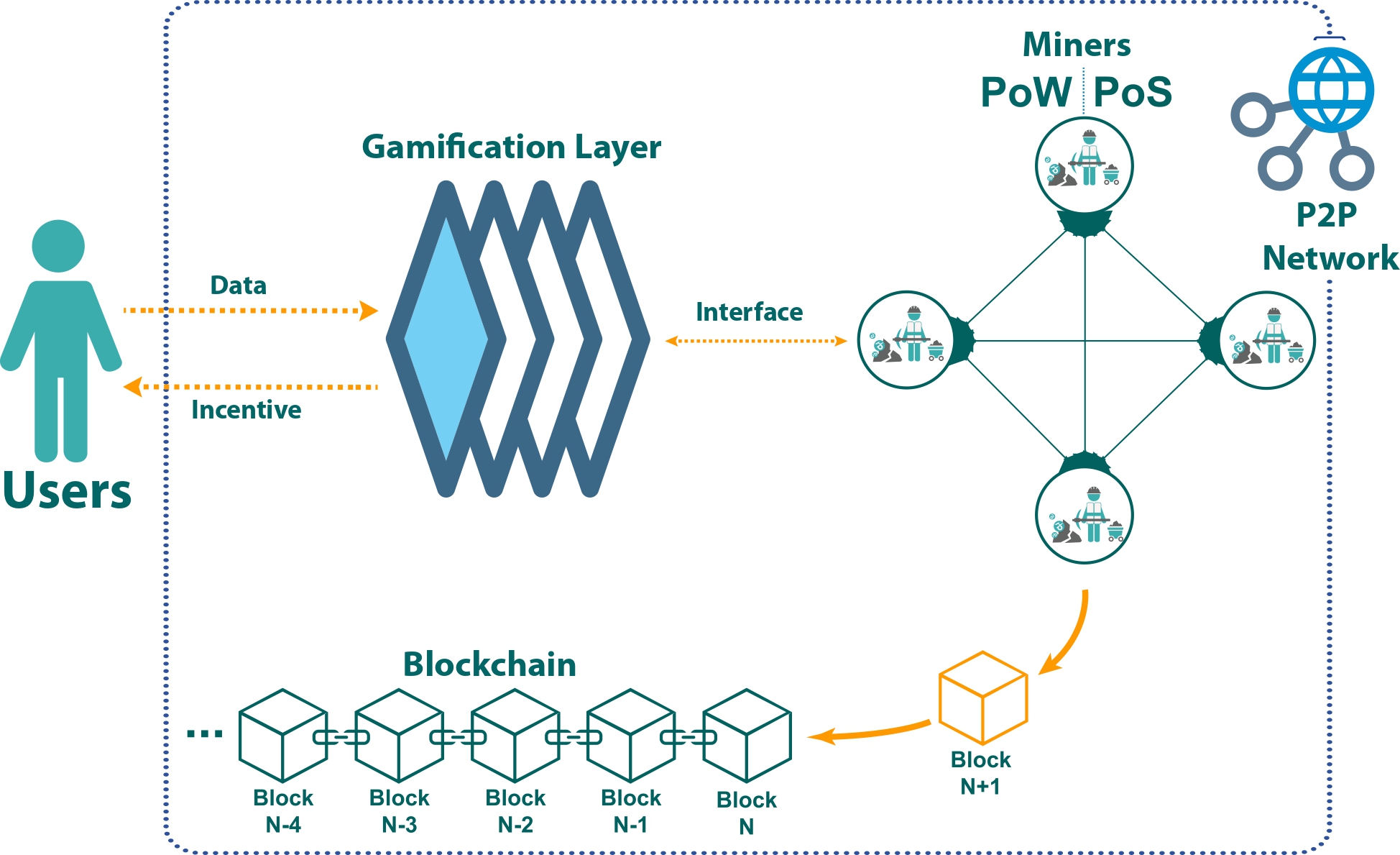Blockchain technology can be a great tool to develop open-innovation.
Blockchain is a peer-to-peer technology that can operate without a central node or a unique control entity. The information is stored securely, and can the possibility to consult assures its transparency. It can be seen as a distributed database that includes the history of all exchanges made by its users since the first block has been created. This distributed database, which is shared by all the users without any third-party intervention, allows then to check the validity of each block of the chain.
Blockchain started as a technology to support financial transactions by the interchanging of a block with an equivalent monetary value. As the different implementations and protocols evolved, the inclusion of tokens and smart contracts extended the spectrum of applications, being possible to interchange value/information in other sectors such as health, property, energy, and logistics by the interchange of tangible/intangible goods. In this case, the most interesting application is the interchange of the intangible goods in terms of ideas and property being particularly promising for co-creation and them open innovation.

Barriers in the co-creation processes
Some co-creation processes encounter quantitative and qualitative barriers that limit the number and quality of the results.
The quantitative limitations are due to the factor of mobilization, either to get the required number of participants to a new process or the limitation of growing an existing co-creation process to a high number of participants. For the qualitative limitation, one major issue is the property of the idea and/or the methods created. The uncontrolled and unrecognized contribution could discourage users from participating in the co-creation processes. The other limitation is the management (and accountability) of the co-creation process resources.

Overcoming the co-creation barriers with blockchain
It is possible to overcome the qualitative limitations with blockchain technology, then making possible to overcome the quantitative barriers because of the interest of the users to participate in a co-creation process that is well accountable in terms of contributions.
Notarizing the contributed ideas inside a block creates traceability of the idea creator, then who has to get the merits for the results. This is possible by representing the idea information inside a token and then combining such tokens as different ideas for generating a complete co-creation process for some service or product.
Some co-creation processes may require the provision of resources in terms of participant time, tangible/intangible goods, and also funds proportioned by the same participants. Those resources can be accountable and assigned proportionally by using regular blockchain tokens. The relevant scenario is the one in which the participants may receive a return for their “invest”. It is necessary to use smart contracts that automatize the tokens (goods/money) assignment depending on their contribution, making it possible without the intervention of a manager. Smart contracts add trustiness into the co-creation process resource management, incentivizing participation with the provision of resources.

Closing words
There is no doubt that blockchain can boost co-creation processes, being possible to self-manage huge groups, having tons of resources. The main drawback is the requirement of the digitalization of the participant’s interactions, adding a new layer to the co-creation processes that cannot be ignored. This new layer requires the redesign of some co-creation processes.


